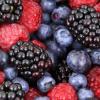I currently use reishi as my mTOR inhibitor.
I do too, but didn't realize I had to cycle it.
What is your daily dose and what is the frequency of your cycle?
Thanks.
A gram a day of Swanson's extract that has triterpenes and cracked spores like the Pharmanex ReishiMax extract. My cycle is 11 weeks on and then for 2 weeks I use the evil things: whey protein, leucine, growth hormone releasers (glycine, glutamine, ornithine, and some leftover agmatine that I'm not sure will work for this purpose), and RNA. 11/2 was arbitrarily chosen to make a cycle quarterly. Rapamycin has been studied in 2 weeks on/2 weeks off cycles, but it's probably way more powerful than reishi.
Wow, glycine evil? Please expand on what you interpret the net negative of Glycine is? It may possibly have a mild uptick in GH (ultimately IFG-1) secretion but it is a powerful Methionine scavenger which is material to this thread. Do you not feel that this far outweighs its marginal at best GH uptick causation? I use Methionine as a constant staple in my diet. Look at this study (albeit in mice) that shows a huge life-extension, both mean and maximum to high glycine supplementation:
http://www.fasebj.or...Abstracts/528.2
It also shows that there was in fact a decrease in IGF-1, which indicates a decrease in GH.
I use gelatin protein exclusively as its almost nil on Methionine and high in Glycine. I even then add glycine and Serine (scavenges Cystine, Me's little brother for purposes of this thread). I use a bit of extra Leucine and then add a good amount, usually a heaping teaspoon of an organic reishi powder. I add then some sweet potato powder and that's my staple meal. I eat almost no animal meat or other foods high in Me. IGF seems to be a double edged sword and helpful in some areas whereas Me is almost all negative. I'm super athletic and I feel this is the best way to proceed to maintain/increase muscle.
Also, what do you mean about RNA? Are you saying you supplement occasionally with something like Uridine? and you view it as an "evil"? Again, please explain as I am curious if there's something I'm missing.
I'm certainly open to your theory but please advise as to why you feel the way you do.
Edited by ikon2, 02 January 2015 - 04:23 PM.



































































